Why Does Hair Get Greasy So Fast After Washing & How to Fix It?
Updated on
This post may contain affiliate links. As an Amazon Associate, we may earn from qualifying purchases.
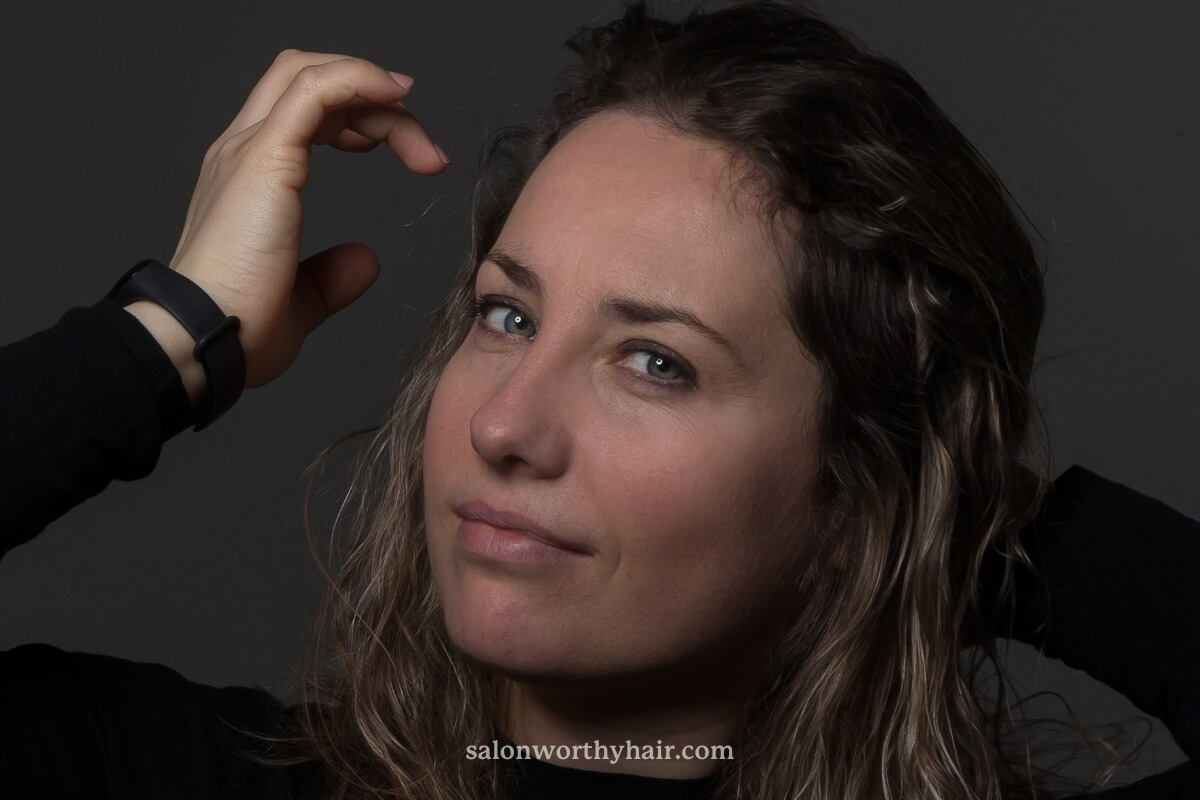
Does your hair go from squeaky clean to slicker than a greased pig in record time?
One moment, you’re feeling fresh out of the shower, and the next, you look like you’ve accidentally dipped your head in a vat of oil.
It can be frustrating, to say the least.
So why does hair get greasy so fast for some of us?
There are several reasons, but one of the main culprits is excess sebum, a natural oil produced by the scalp.
If your hair is getting greasy all of a sudden, it may point to bad hair care habits that’s triggering your scalp to produce more sebum than necessary.
Let me show you how to identify and weed out those bad habits.
1. You’re Overwashing
Frequent hair washing removes sebum, an oily substance produced by the scalp’s sebaceous glands that protect the hair and skin by lubricating them. Sebum also maintains the scalp’s pH balance to prevent bacteria and fungi growth. [1]
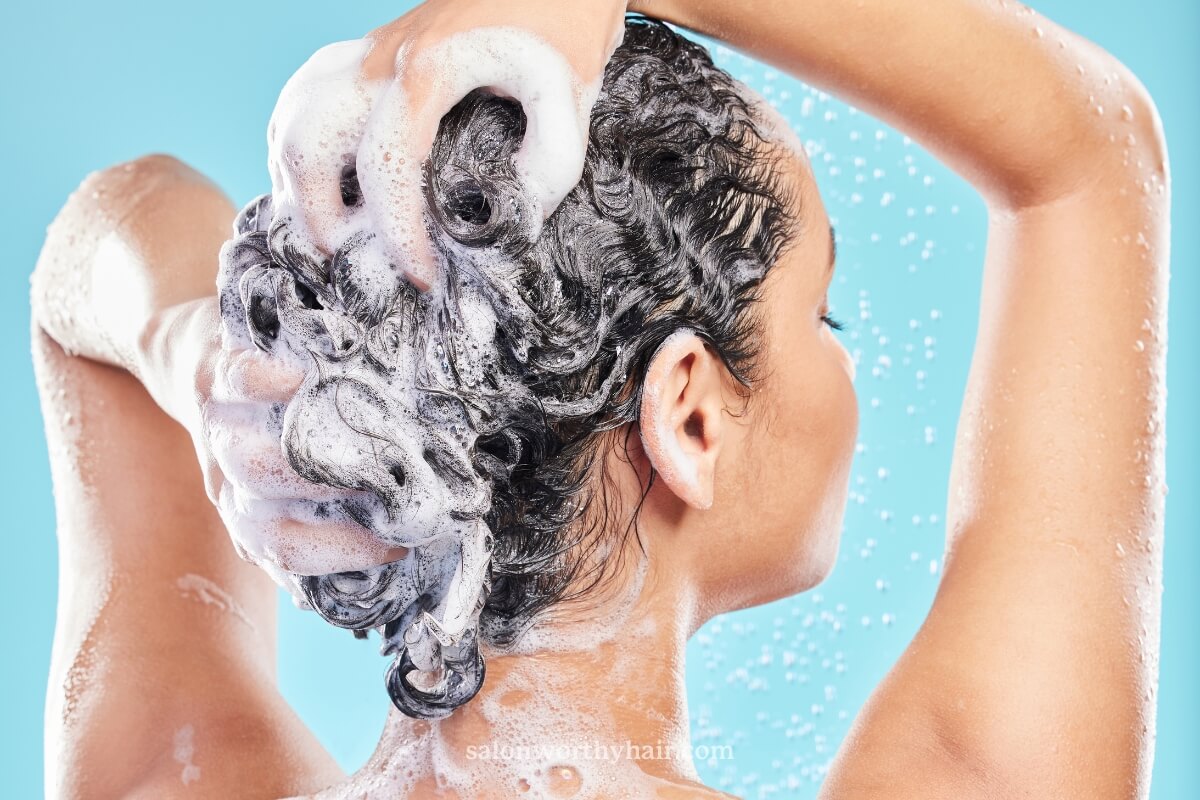
When the scalp senses insufficient sebum, it goes into overdrive and produces more to restore balance.
Now, I know some of you might be thinking:
“But my hair is always flat and greasy, so I have to wash it every day!”
I get it.
I used to be in the same boat. My hair used to get greasy just one day after washing it!
Then I realized – the more I washed my hair, the greasier it became.
So how did I fix it?
I stretched out my wash days for longer and changed my shampoo.
It’s all about finding a good balance. Instead of shampooing daily, try different schedules and allow your scalp to adjust.
Use dry shampoo in between washes to soak up the greasiness at the roots and freshen up your hair. And when you do wash your hair, be gentle. Use lukewarm water, and avoid stripping shampoos that contain sulfates.
Sulfates are the biggest culprits that deplete sebum from the scalp.
It’s the reason why many people prefer alternative hair care methods like No Poo, which involves not shampooing at all. While these methods may seem extreme, they can reduce excess scalp sebum when followed with consistency.
If you’re keen on trying it, we’ve written a full guide here:
Read: How to wash hair without shampoo.2. You’re Not Using Conditioner Correctly
Not applying conditioner properly can make your hair greasy.
For example, if you apply conditioner too close to your scalp or use too much of it, it can be difficult to rinse out completely, leaving you with greasy roots.
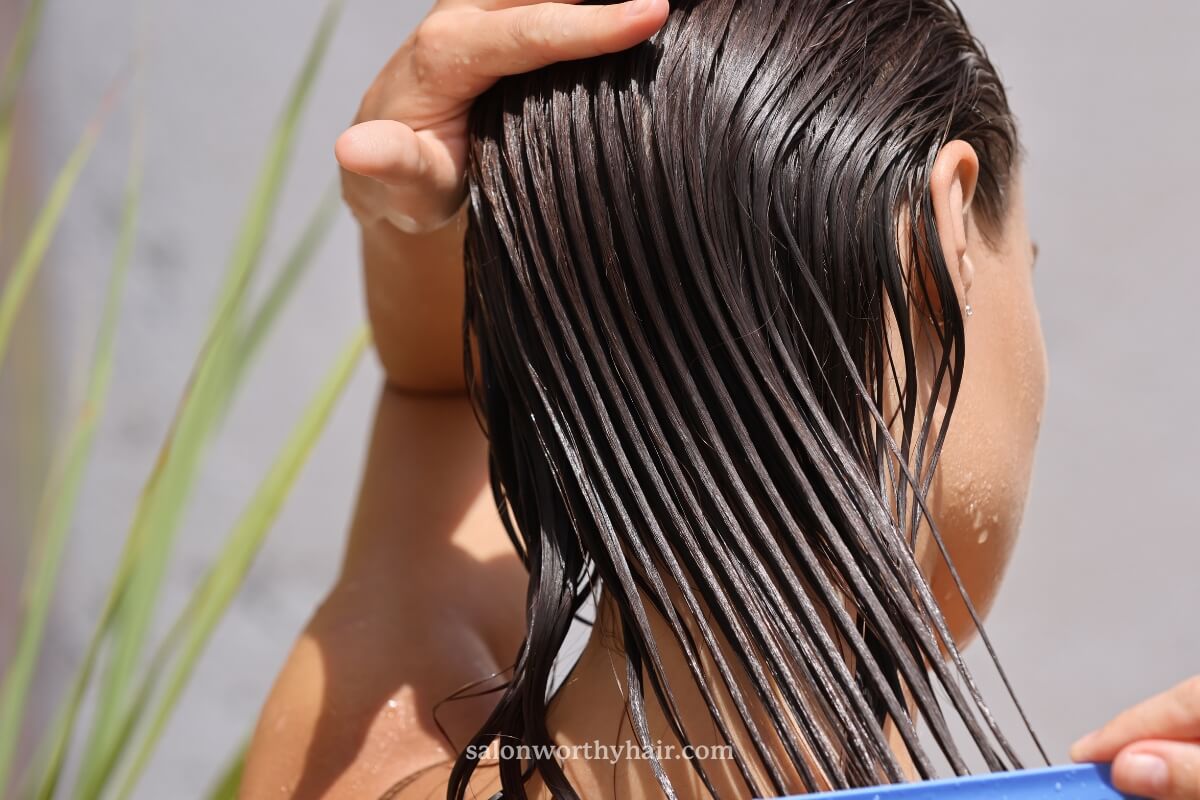
Some conditioners contain ingredients like:
- Silicones.
- Heavy oils and butters.
- Humectants.
- Quaternary ammonium compounds (quats).
These ingredients are primarily used to moisturize, soften, and smooth the hair, making it more manageable and less prone to tangling and breakage. But unfortunately, if not rinsed out properly, they can be heavy for certain hair types, like thin hair, causing an oily and weighed-down appearance.
Do not apply conditioner too close to the root area to prevent greasy hair. Focus on just the ends of your hair instead. Or, if you have long hair, apply from mid-lengths to the ends.
You must also get the right conditioner for your hair type. Use lightweight and oil-free conditioners if your hair is particularly prone to greasiness.
3. Your Shampoo Contains Sulfates
Sulfate-based shampoos can be a double-edged sword, as their effectiveness in removing oils and dirt can also lead to over-stripping sebum from the scalp, leading to dryness and irritation.
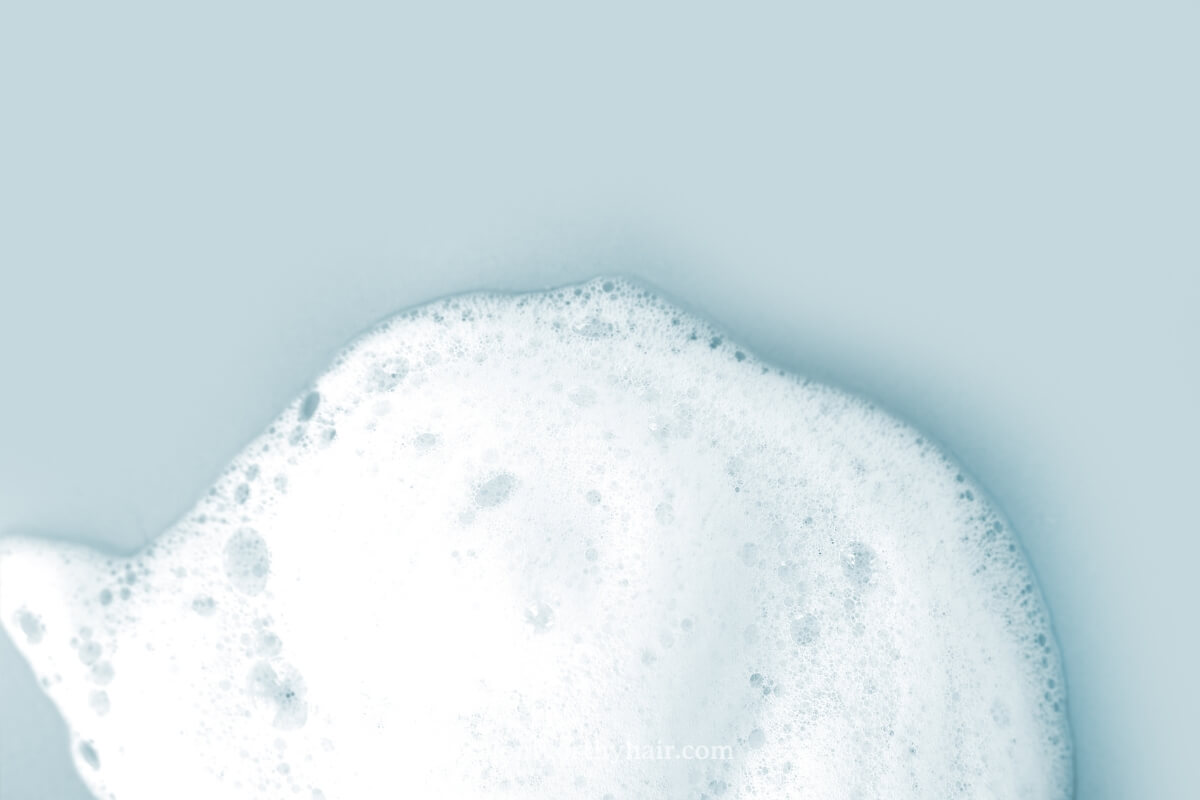
Sulfates are beneficial in shampoos formulated to deep cleanse (clarifying), which are meant to be used weekly to break down stubborn buildup. But if you are using one daily, it may be why your hair feels so greasy. Try switching to a gentle sulfate-free shampoo and observe the difference.
4. Improper Washing Technique
Did you know that the way you wash your hair can make a difference in how greasy it gets?
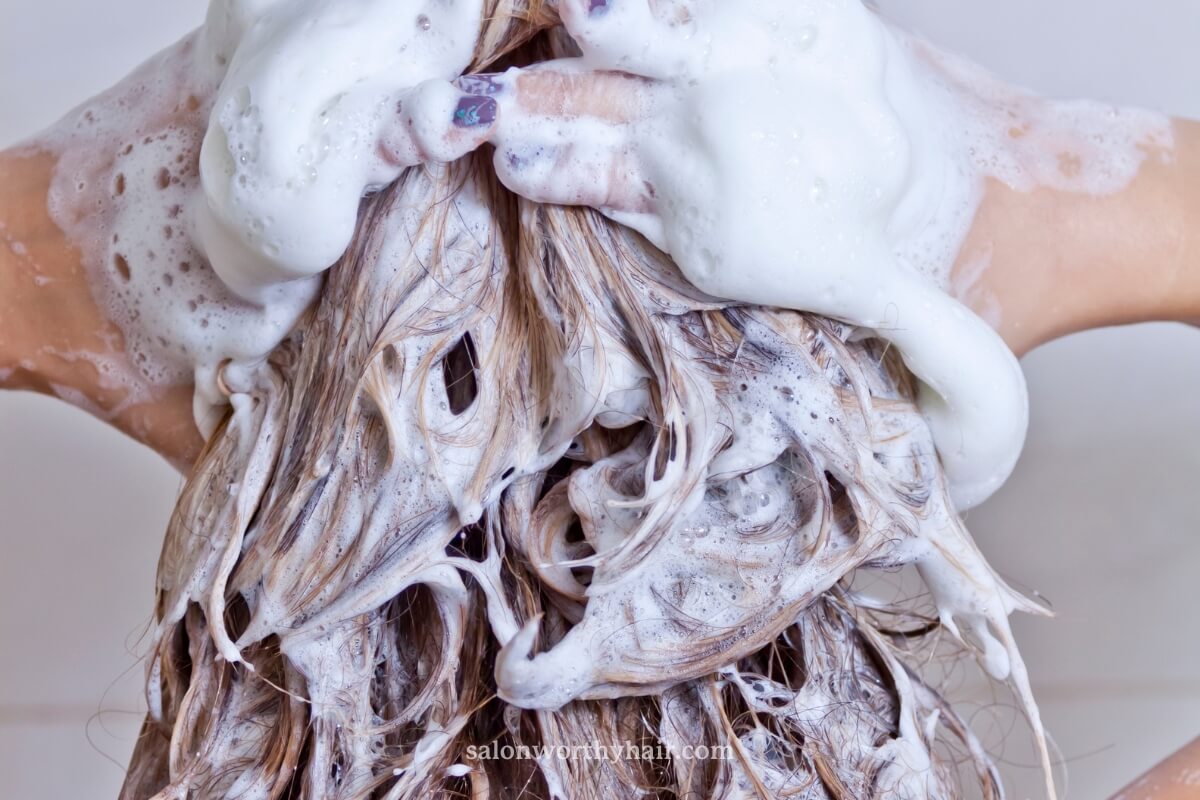
Let me explain by highlighting some common hair-washing mistakes:
Insufficient rinsing
Not rinsing your hair thoroughly can leave shampoo lather and conditioner buildup. This residue can attract dirt and oil, leading to greasy hair.
Concentrating shampoo on hair ends:
Another common mistake I see most people make is concentrating shampoo on their hair ends rather than their scalp.
Shampoo is primarily designed to cleanse the scalp, where dirt, oil, sweat, and product buildup accumulate. If you focus on shampooing the ends instead of the scalp, you may not remove the buildup effectively.
To avoid this, apply shampoo to the scalp and massage it gently, letting the suds run down the length of your hair as you rinse. Use a scalp massager shampoo brush if you have long, thick, or textured hair and struggle to reach your scalp.
5. Washing Hair With Hot Water
Washing your hair with hot water can stimulate the sebum glands to produce more oil in response to the heat. [2]
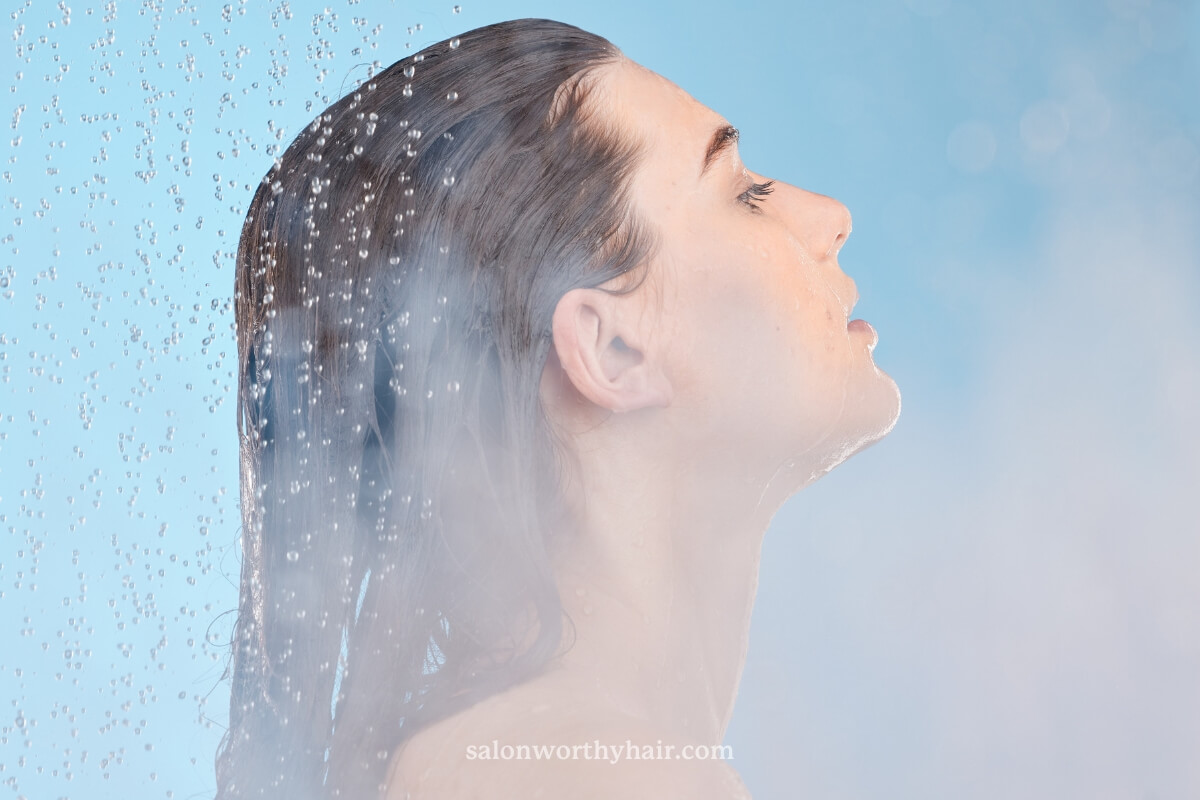
According to a study published in the Journal of Investigative Dermatology, sebum production increases in response to heat stimulation by activating certain receptors in the skin to trigger the sebaceous glands. [3]
If you have oily hair, avoid washing it with hot water. Try lukewarm or cold water and observe how your scalp and hair react.
6. Product Buildup
Hair products such as hairspray, gel, or mousse can leave a residue on the hair that attracts dirt, dust, and other pollutants to create a greasy, slimy layer.
Here are the reasons why this type of buildup can lead to oiliness:
Clogged hair follicles:
Hair follicles are tiny pores located in the dermis layer of the scalp through which hair grows. When hair care products and oils accumulate on the scalp, they can clog these follicles. Clogged follicles can overstimulate the scalp and lead to an increase in sebum production.
Product buildup attract more dirt:
Products that contain silicone and wax can leave a coating on the hair that can be impermeable and moisture-resistant. This can cause buildup on the hair, leading to greasiness and dullness over time. The coating can also attract dirt, dust, and other pollutants, creating a layer of grime on the hair shaft. That’s why a weekly clarifying shampoo is essential to break them down.
7. Hard Water
Hard water contains high levels of minerals such as calcium, magnesium, and iron. These minerals can interfere with the lathering process of shampoo, making them ineffective and difficult to rinse out. The result is a mixture of shampoo and minerals, also commonly referred to as “soap scum,” that sits on the hair and scalp. Over time, this buildup can irritate the scalp, causing overactive sebaceous glands.
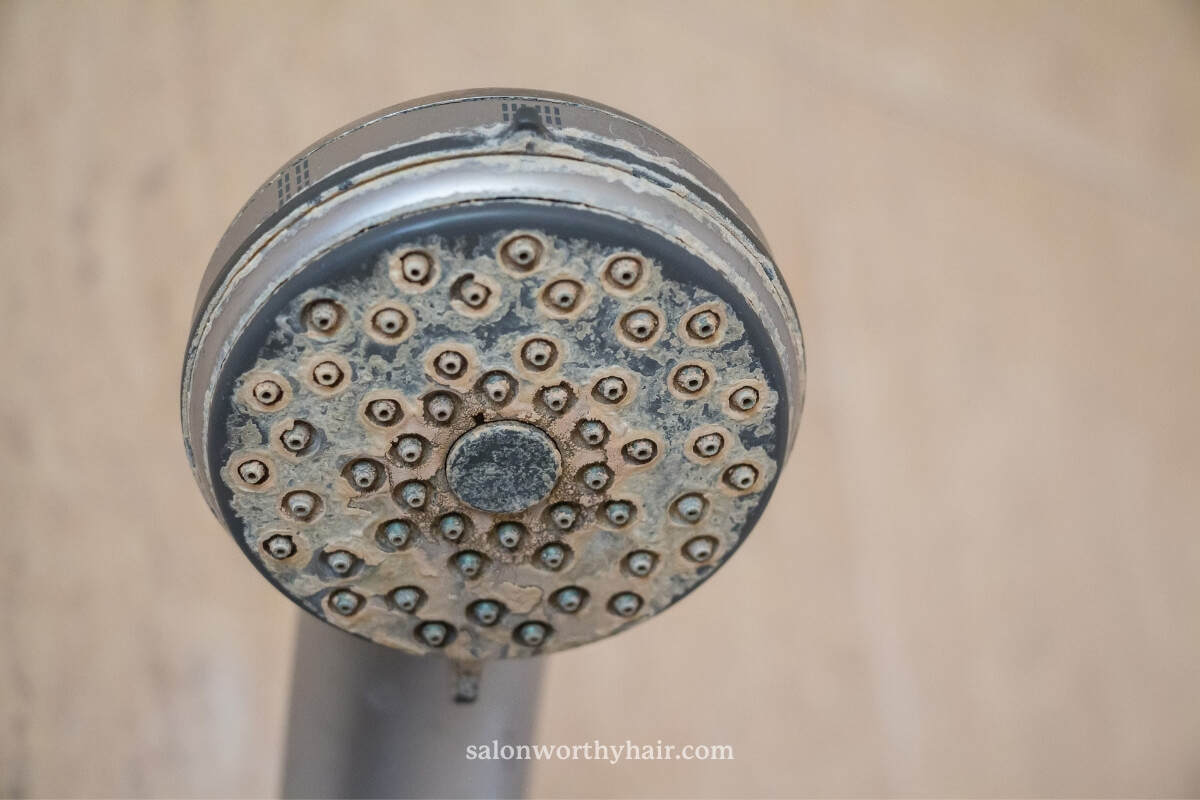
Another possible reason for greasy and flat hair is softened water. While soft water is generally considered better than hard water, sometimes it depends on what’s added to the water to make it soft. Some people have sodium-based water softeners, and sodium can react to shampoos, affecting their ability to lather and rinse effectively.
Recommended: Best shampoos for soft water that don’t make hair greasy.8. Touching the Hair Too Much
Touching your hair too much can transfer oil and grease from your hands onto your hair to make it greasy.
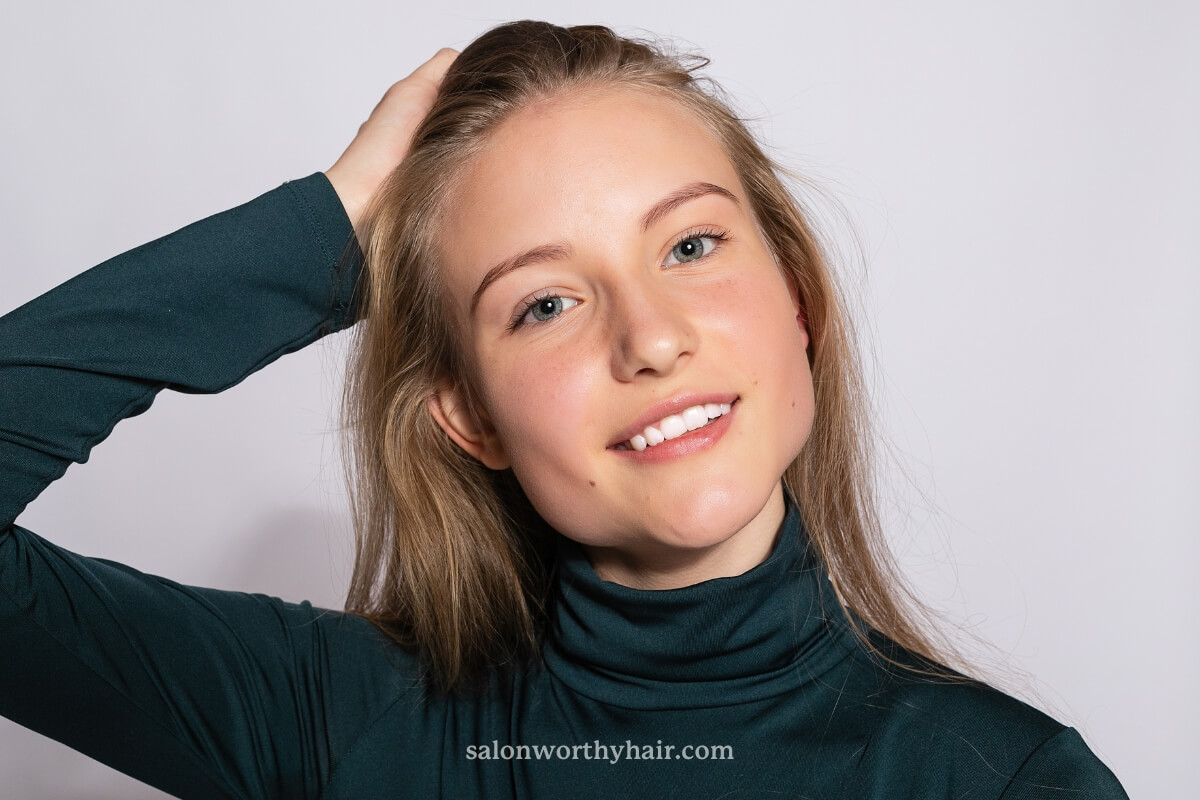
Our hands produce natural oils necessary for keeping our skin moisturized, but when we touch our hair frequently, we transfer these oils onto our hair.
So resist the urge to touch your hair. If you can’t, just put it in a ponytail on lazy days.
9. Humidity
High humidity can cause more sebum from the scalp to transfer onto the hair and make it greasy.
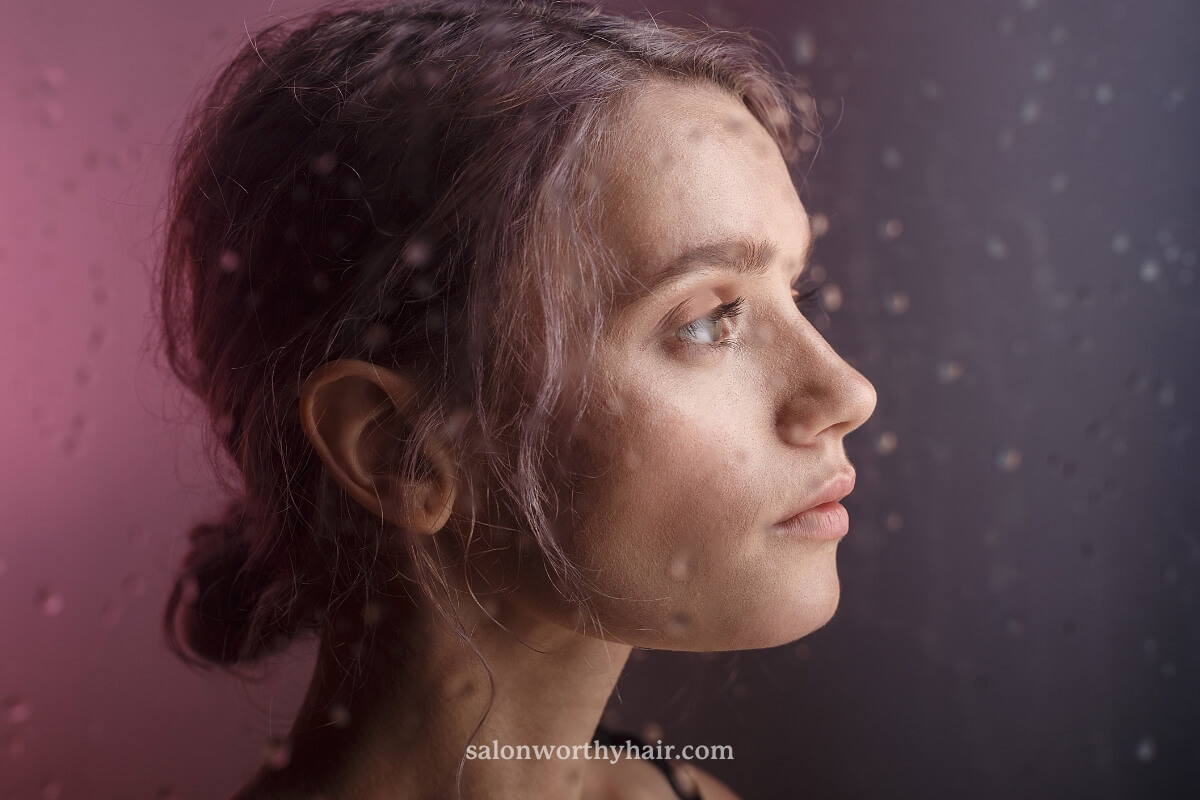
According to a study published in the Journal of the Society of Cosmetic Chemists of Japan, which evaluates the ability of hair styling products in humid conditions, it was observed that under high humidity, scalp sebum also plays a key role in decreasing the effectiveness of hair setting products.
Humidity (when there’s a lot of water in the air) causes the hair to absorb excess moisture. As a result, the hair cuticles swell and become more porous. This increased porosity can lead to increased absorption of oils and other hair care products, making the hair appear greasier than usual.
To prevent humidity from affecting your hair, use an anti-humidity spray.
Color Wow Anti-Humidity Hairspray
10. Sleeping on Cotton Pillowcase
Cotton is known for absorbing moisture, which can be beneficial in some cases but can also negatively affect the hair. When we sleep on a cotton pillowcase, the fabric pulls moisture from the hair, making it dry. In response, the scalp tries to adjust.
Cotton pillowcases can also accumulate dirt and oils from the hair, which is transferred back to the hair. It may be the reason why your hair feels dirtier in the morning.
To prevent greasy hair while sleeping, change your pillowcase more often or get a silk one. Unlike cotton, silk does not accumulate dirt and oils that can transfer into the hair. Silk also regulates the hair and skin’s moisture to prevent dehydration.
11. Bad Diet
A bad diet, particularly one high in refined carbohydrates and saturated fats, may increase oil production on the scalp. Diets high in fried, fatty, and sugary foods can also contribute to greasy hair. Eating too many omega-6 fatty acids without consuming enough omega-3 fatty acids can also cause greasier hair. A balanced diet that includes lean proteins, fats, and vegetables can promote overall health and healthy hair. [4]
How to Fix Greasy Hair Fast
Use Dry Shampoo and Wash Your Hair Less
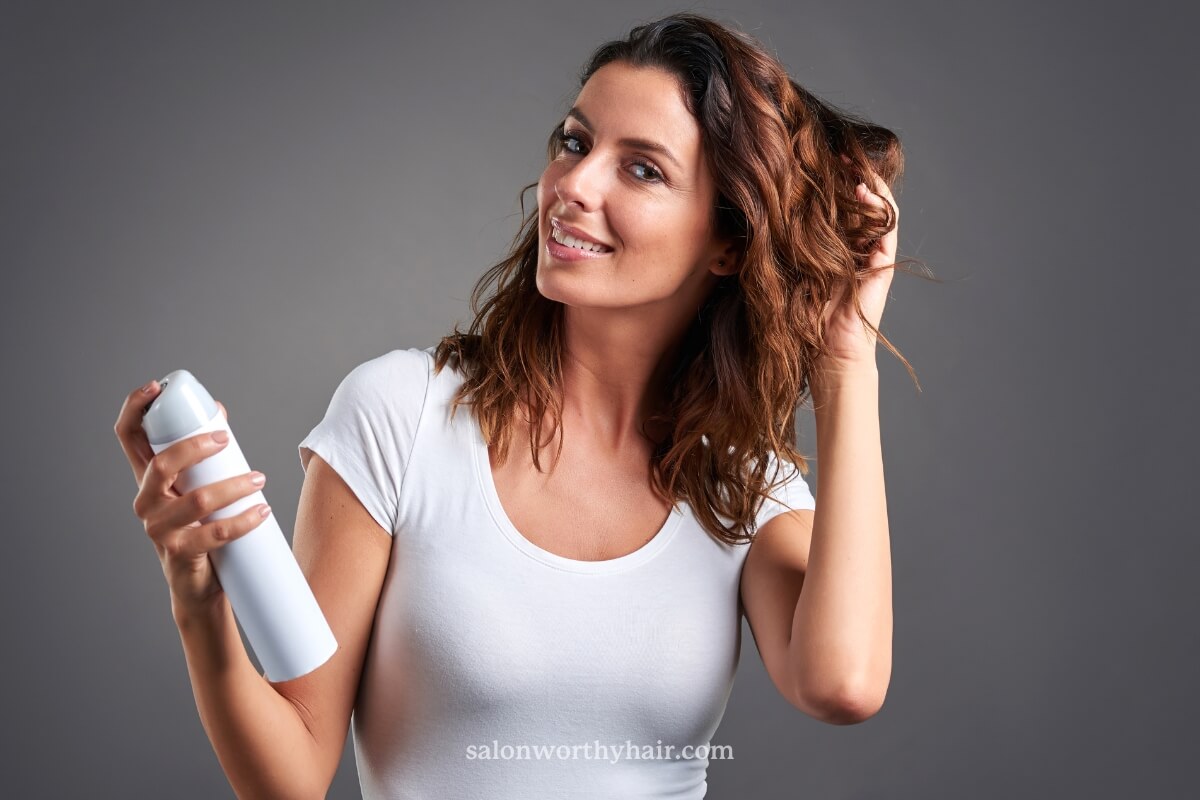
Dry shampoo is a hair product that can quickly fix oily roots without washing. The product typically comes in an aerosol spray or powder form and is designed to absorb dirt and greasiness from the scalp and hair, leaving it looking and feeling refreshed.
The product contains ingredients such as starch, talc, or silica that have a high absorbency capacity. When the product is applied to the hair and scalp, it absorbs excess oil and sebum from the scalp, leaving it less greasy and refreshed.
Dry shampoo can also mask unpleasant odors associated with unwashed hair. So your hair stays fresh for longer without washing.
However, it’s important to note that dry shampoo isn’t a substitute for washing your hair. It’s best used in between regular shampoos to extend the time between washes, not as a replacement.
Recommended: Best dry shampoos without butane and propane.Apple Cider Vinegar Rinse
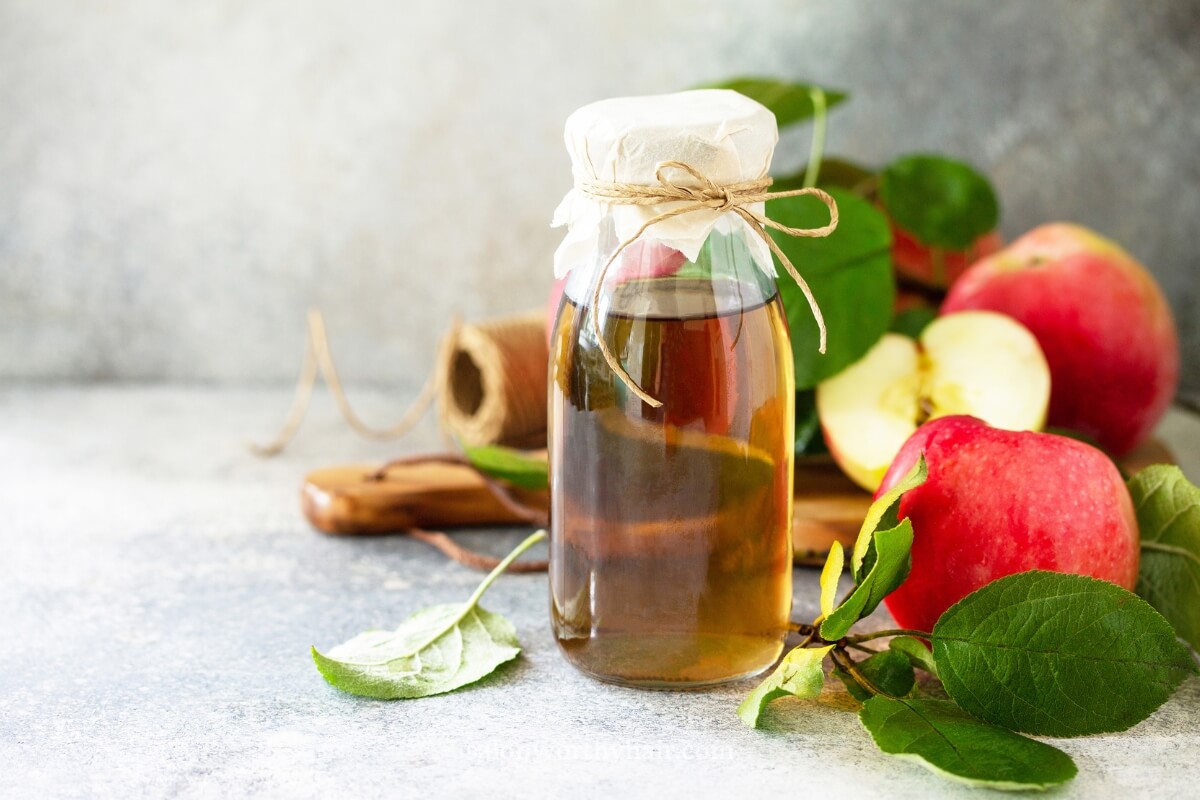
An apple cider vinegar (ACV) rinse is a home remedy that can help fix greasy scalp fast. It’s a better natural alternative to traditional shampoos that can strip the hair of its natural oils.
ACV has a low pH, which is closer to the pH of the scalp and hair. Washing hair with traditional shampoo can raise the hair’s pH to alkaline, which can lead to the overproduction of oil by the scalp. An ACV rinse helps to restore the pH balance of the hair and scalp, reducing the overproduction of oil.
ACV has antibacterial and antifungal properties that can help detoxify the scalp and inhibit the growth of bacteria and fungus on the scalp, which may contribute to excess oiliness and other scalp issues like dandruff.
If you want to try it, mix 1-2 tablespoons of cider vinegar with a cup of water and apply it to your hair. Let it sit for a few minutes, then rinse it thoroughly.
Avoid Stripping Shampoos
Sulfates are detergents commonly found in shampoos. They strip the hair and scalp, leading to an overproduction of oil by the scalp.
Use a gentle sulfate-free shampoo instead. It can help the scalp maintain its natural oil balance, reducing the overproduction of oil.
Clarify Your Hair Weekly
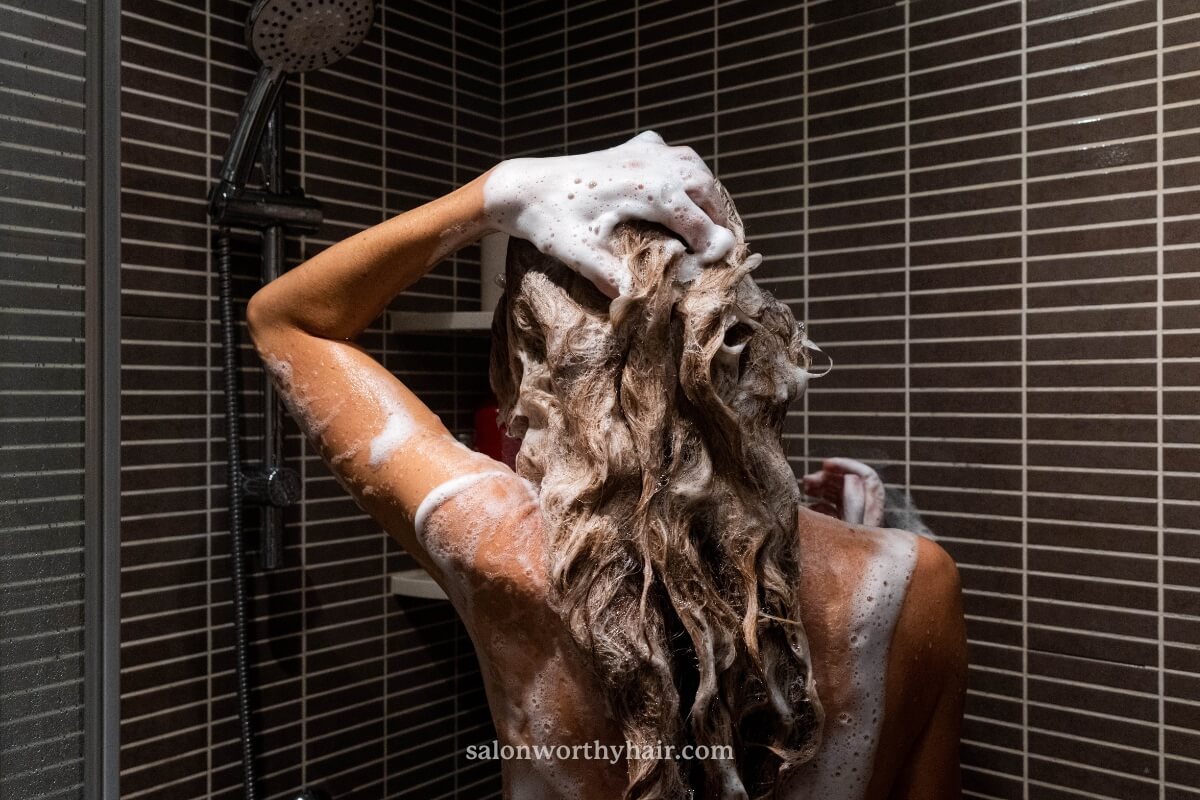
Clarifying shampoo is designed for a deeper cleanse. It removes buildup from styling products, oils, impurities, hard water minerals, and pollutants that make the hair look flat and dull.
These special shampoos are formulated to dissolve and break down buildup with ingredients like acetic acid, citric acid, or salicylic acid.
Recommended: Best clarifying shampoos for every hair type.Use a Silk Pillowcase
Silk helps retain moisture in the hair, unlike cotton fabrics that suck the moisture. It helps your hair to retain moisture so your scalp doesn’t have to overwork to restore it.
Silk pillowcases are less likely to accumulate dirt and grease, which can be transferred back onto the hair during sleep.
SLIP Silk Pillowcase
Brush Regularly with a Boar Bristle Brush
A boar bristle hairbrush can be a greasy-haired person’s best friend due to its unique properties that can help manage oily hair. The bristles of a boar bristle hairbrush are densely packed and naturally distribute the scalp’s oils evenly throughout the hair, making it a great tool for getting rid of oily roots.
The brush can also help to stimulate blood flow to the scalp by creating a gentle massaging effect on the scalp.
Another benefit of using a boar bristle hairbrush is that it can add shine to the hair. As the bristles distribute natural oils throughout the hair, they also help to smooth the hair cuticles, leading to a shinier and more lustrous appearance.
Denman Boar Bristle Brush
It’s Time to Break the Bad Habits
Now that you know why your hair gets greasy so fast, break the bad habits and adapt your hair care routine to fix your greasy hair woes.
These easy solutions will help you get rid of greasy hair, or at least not make you feel like you have to clean your hair daily.
References & Citations
-
One of the biggest contributors to the acidic nature of the scalp is the sebum that is produced to protect the acid mantle.
Retrieved on April 06, 2023.
https://www.headandshoulders.co.in/en-in/healthy-hair-and-scalp/hair-care/tips/ph-of-hair-and-scalp - Skin treatment doctor Dr John Tanqueray explains how heat causes oily skin problems.
Retrieved on April 06, 2023.
https://www.mulberryhouseclinic.co.uk/2016/08/17/summer-sebum-heat-causes-oily-skin-problems/ - Tsumura, Asako & (Otsuka, Kaori & Fujii, Noriko & Fujita, Fumitaka & Hisahara, Takeshi & Ohno, Kengo. (2016). The Influence of Scalp Sebum on the Performance of Hair-Styling Products and Its Transfer Behavior under High Humidity Conditions. Journal of Society of Cosmetic Chemists of Japan. 50. 33-40. 10.5107/sccj.50.33.
Retrieved on April 06, 2023.
https://www.researchgate.net/publication/315462472_The_Influence_of_Scalp_Sebum_on_the_Performance_of_Hair-Styling_Products_and_Its_Transfer_Behavior_under_High_Humidity_Conditions - Head & Shoulders – Can your diet cause you to have greasy hair?
Retrieved on April 06, 2023.
https://headandshoulders.com/en-us/healthy-hair-and-scalp/hair-care/can-your-diet-cause-you-to-have-greasy-hair
About the Author
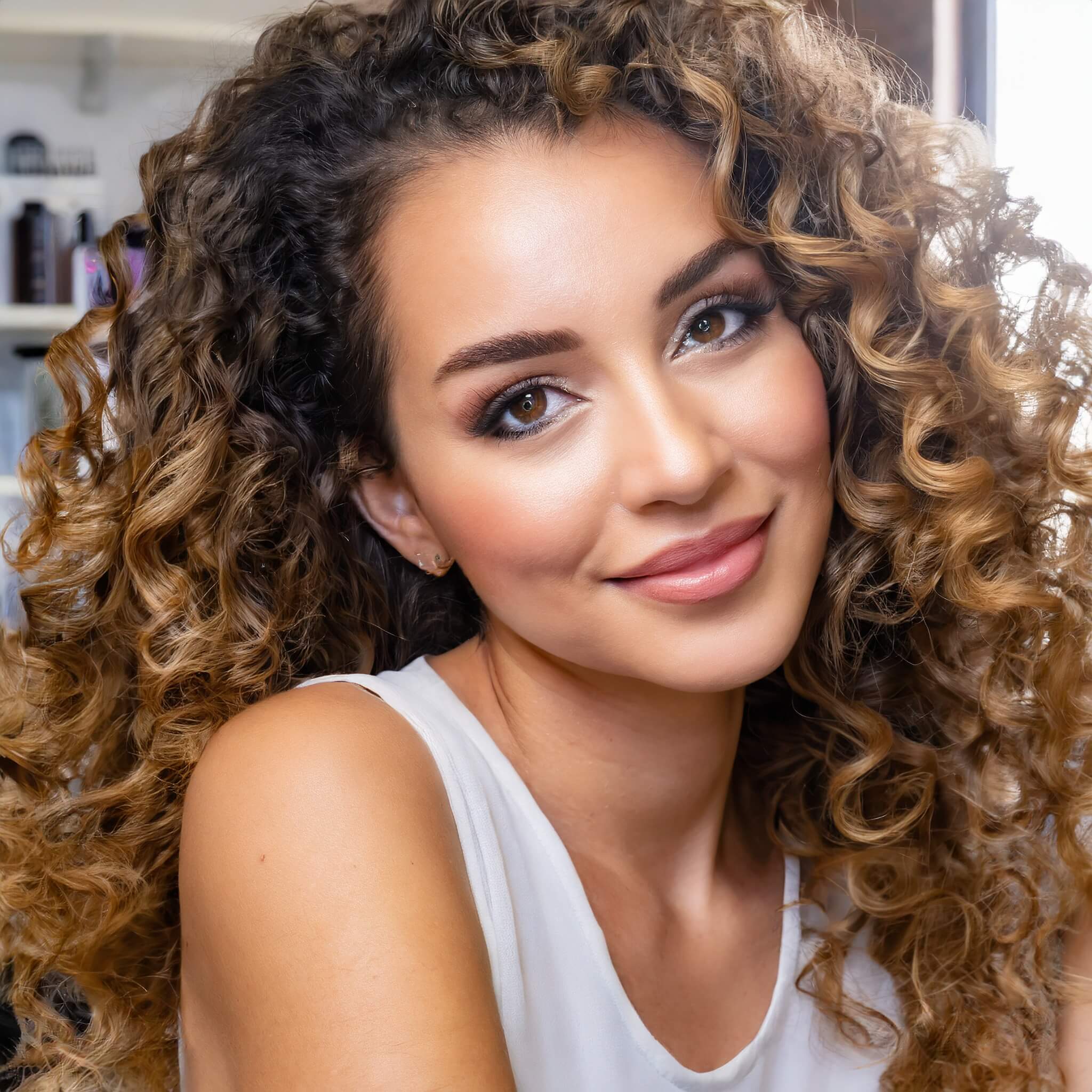 Camelia Smith
Camelia SmithCamelia Smith can color hair, perform keratin treatments, bleach hair, and even cut curly hair. She is our go-to person whenever we have hair treatments and styling questions.
She's also currently training as a freelance makeup artist and is passionate about helping others feel beautiful in their skin. When she's not writing or doing hair, she's usually spending time watching British period dramas.


